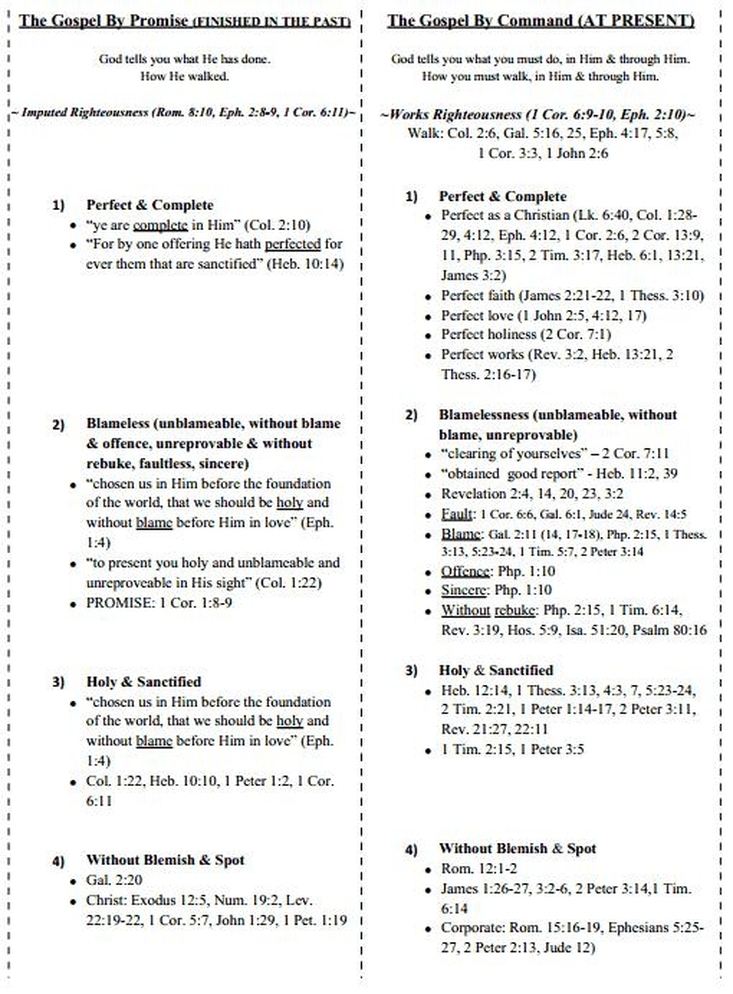| Initial Acceptance "Having predestinated us unto the adoption of children by Jesus Christ to Himself, according to the good pleasure of His will, to the praise of the glory of His grace, wherein He hath made us accepted in the beloved." - Ephesians 1:5-6 | Final Acceptance "We are confident, I say, and willing rather to be absent from the body, and to be present with the Lord. Wherefore we labour, that, whether present or absent, we may be accepted of Him. For we must all appear before the judgment seat of Christ; that every one may receive the things done in his body, according to that he hath done, whether it be good or bad. Knowing therefore the terror of the Lord, we persuade men; but we are made manifest unto God; and I trust also are made manifest in your consciences." - 2 Corinthians 5:8-11 |
| Initial Salvation = Made Alive "Even when we were DEAD in sins, hath QUICKENED us together with Christ, (by grace ye are saved;)" - Ephesians 2:5 | Final Salvation = Finally Judged Alive "And unto the angel of the church in Sardis write; These things saith he that hath the seven Spirits of God, and the seven stars; I know thy works, that thou hast a name that thou LIVEST, and art DEAD. Be watchful, and strengthen the things which remain, that are ready to DIE: for I have not found thy works perfect before God...He that overcometh, the same shall be clothed in white raiment; and I will not blot out his name out of the book of life, but I will confess his name before my Father, and before his angels. He that hath an ear, let him hear what the Spirit saith unto the churches." - Revelation 3:1-2, 5-6 |
"Who shall give account to him that is ready to judge the QUICK [LIVING] and the DEAD."- 1 Peter 4:5
| “O LORD, revive Thy work in the midst of the years, in the midst of the years make known; in wrath remember mercy” (Habakkuk 3:2). |
| “Though I walk in the midst of trouble, Thou wilt revive me: Thou shalt stretch forth Thine hand against the wrath of mine enemies, and Thy right hand shall save me. The LORD will perfect that which concerneth me: Thy mercy, O LORD, endureth for ever: forsake not the works of Thine own hands” (Ps. 138:7-8). |


 RSS Feed
RSS Feed